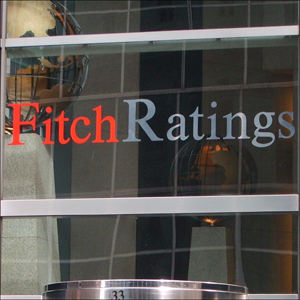Fitch Ratings-London-16 December 2015: A new foreclosure framework will only offer limited benefit to Greek RMBS transactions as lenders are unlikely to increase foreclosures in an illiquid residential property market where house prices are still falling, Fitch Ratings says. But the threat of repossession may deter strategic defaulters, who appear to have contributed to persistent weakness in the Greek mortgage market, where early- and late-stage arrears have continued to rise in 2H15.
Discussions with Greek lenders suggest they have little appetite to step up repossession activity even after parliament said it would make changes to the foreclosure framework to make it easier for lenders to take possession of collateral. Some borrowers will still be protected from repossession of their primary residence.
Making it easier to repossess and auction debtors’ main residences should in theory boost cash flows from recoveries and potentially shorten enforcement timing. But a weak economy (we forecast real GDP to contract this year and next) is keeping pressure on house prices, which we expect to fall 6% in 2015, 4% in 2016, and 2% in 2017.
The ‘Bsf’ house price decline assumption and the quick-sale adjustment (QSA) used in our Greek RMBS analysis are both high, at 45% and 38% respectively. The QSA is a stress that reflects the need for a forced sale in an illiquid market, and the potential poor condition of repossessed properties. Where it has been available, the Greek foreclosure process is lengthy (we assume eight years in a ‘Bsf’ scenario).
Previous adjustments to the foreclosure framework have not significantly boosted enforcement activity. We therefore expect the volume of properties in possession to remain low and recoveries on defaulted loans to come mainly from other sources, such as out-of-court agreements. Making repossessions easier will at least give the banks greater negotiating power to encourage borrowers to restructure their loans.
It may also deter strategic defaulters from withholding payments. The suspension on foreclosures in 2010 coincided with a substantial increase in arrears, and borrower behaviour may be a factor in the rise in early-stage arrears this year. The proportion of loans in Fitch-rated RMBS deals in arrears by more than a month (including defaults) rose to 22% in October, from 18% in July and 17% in January, and we think some payments may have been withheld during the extended period of uncertainty before July’s bailout agreement and following the introduction of capital controls.
This has continued to flow through to late-stage arrears, which have reached an historical high. Three-month-plus delinquencies climbed to 7.8% in October, in contrast to most other European RMBS markets, where an improving macroeconomic environment and credit flows are pushing arrears down and prepayments up.
We think a weak economy and lack of bank credit will outweigh any benefits from foreclosure rule changes on Greek mortgage performance. We forecast asset performance to remain weak in 2016 due to uncertainty about the banking system while capital controls remain, and falling disposable income. Greece is the only European RMBS market where we have a negative asset performance outlook for 2016.



















